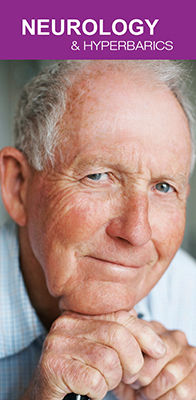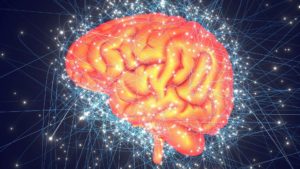Neurological Disorders May Improve with Hyperbaric Oxygen Therapy
Approximately 1 billion people, of all ages, are currently affected by neurological disorders, with an estimated 6.8 million deaths that occur every year worldwide.

A neurological disorder is any disorder of the nervous system. Symptoms of neurological discorders include: paralysis, muscle weakness, poor coordination, seizures, confusion, pain and changed levels of consciousness. Some disorders are rare, while others are very common. Some have severe symptoms while others have symptom that are more manageable while still interfering with daily life. Examples that are most recognizable include: Alzheimer’s disease, seizure disorders such as epilepsy, sleep disorders like narcolepsy, stroke, complex regional pain syndrome, migraines, Tourette’s syndrome, and Parkinson’s disease.
Reviewing the above list it becomes possible to understand the staggering statistical numbers and how they illustrates the substantial impact of neurological disorders throughout the world.
Evidence continues to show how hyperbaric oxygen therapy (HBOT) helps individuals regain neurological activity and functionality. For neurodevelopmental and neurodegenerative disorders, in addition to neurological injuries, HBOT provides the brain with increased levels of oxygen to help recover/repair brain tissue, proliferate the creation of new brain cells and improve cognitive functioning.
Benefits of Hyperbaric Oxygen Therapy for People with Neurological Disorders
Clinical studies have demonstrated the following benefits of hyperbaric oxygen therapy for a wide variety of neurological conditions.
Improve Brain Functioning and Performance with HBOT
- Stimulates Angiogenesis
- Improves Cerebral Oxygenation
- Enhance Memory and Mental Performance
Improve Brain Repair and Recovery with HBOT
- Recovers and Repairs Damaged Brain Tissue
- Develops and Regains Cognitive/Motor Functions
Attenuate Neuroinflammation with HBOT
- Reduces Cerebral Edema
- Decreases Intracranial Pressure
- Reduces Cerebral Infaction
- Reduces Blood-Brain Barrier Breakdown
- Minimizes Oxidative Stress
Increase Regeneration of the Nervous System with HBOT
- Stimulates Neurogenesis
- Promotes Proliferation and Mobilization of Neural Stem Cells
- Facilitates Neuroplasticity
Ameliorate Neurological Conditions with HBOT
- Neurodevelopmental Conditions (Autism, Cerebral Palsy, Fetal Alcohol Syndrome)
- Neurodegenerative Conditions (Alzheimer’s, Parkinson’s, Huntington’s Disease)
- Neurological Injuries (Stroke, Traumatic Brain and Spinal Cord Injuries, Concussions)
Source: International Hyperbarics Association
Information on this website is provided for educational purposes only. It is not intended as a substitute for the diagnosis, treatment, and advice of a qualified licensed professional. This website offers general information and in no way should anyone consider that this website represents the practice of medicine. This website assumes no responsibility for how this information is used. Also note that this website frequently updates its contents, due to a variety of reasons. No statements or implied treatments on this website have been evaluated or approved by the FDA. It is important that you do not reduce, change, or discontinue any medication or treatment without first consulting your doctor. Please consult your doctor before beginning any new program of treatment.
Clinical Research
Below is a selected research article that discussed how brain function improves as a result of hyperbaric oxygen therapy.
Do you have questions about a specific symptom or condition? Please contact us!
Study: Brain Function Improves with HBOT
A prospective, randomized, crossover, controlled trial was published in 2013 testing the effectiveness of HBOT for improving brain function and quality of life for mild-traumatic brain-injured patients suffering chronic neurocognitive impairments. A total of 56 patients, 1-5 years after injury, with prolonged post-concussion syndrome were evaluated. Patients in the treated group were assessed prior to HBOT and after 40 HBOT sessions. Whereas patients in the crossover group were evaluated three times: prior to HBOT, after a 2-month control period of no HBOT and after 2-months of 40 HBOT sessions. Significant improvements were confirmed in cognitive function and quality of life in both groups after HBOT, however, no significant improvement was observed following the control period. HBOT was shown to induce significant brain function improvements, the creation of new brain connections and increased brain activity.

